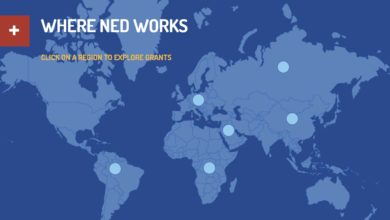On Sunday, July 30, a gigantic rally of over 2.5 million people packed into the Zócalo plaza and surrounding streets of Mexico City. It was the largest protest yet in a campaign led by presidential candidate Andrés Manuel López Obrador. The demonstration stretched for six miles along Reforma Avenue to the Zócalo.
López Obrador ran on the ticket of a coalition of parties known as Por el Bien de Todos (for the good of all). His party is
 |
the liberal Party of the Democratic Revolution (PRD).
The demand was loud and clear—a full and total recount of all ballots cast for president, on July 2. Significant evidence exists of massive vote tampering and fraud by the current ruling party, the rightwing National Action Party (PAN). A complete recount could overturn the preliminary results declared by the Federal Electoral Institute (IFE), which claimed that the PAN’s Felipe Calderón has won.
It is now up to the Federal Electoral Tribunal (TEPJF)—the special court set up for election appeals—to decide on a vote recount before its Sept. 6 deadline. On that date, it must officially declare who will be Mexico’s president for the next six years, but it has until Aug. 31 to decide whether to count some or all of the ballots.
In Sunday’s rally, the third so far since July 2, López Obrador called for a permanent protest presence, with 47 demonstration centers set up throughout the capital city, until there is justice. Chanting, “Vote by vote, ballot box by ballot box,” the people cheered to the call by López Obrador to blockade the streets and city business to make their demands heard. The next day, the city’s center was completely paralyzed by blockades.
The anger and momentum are growing throughout Mexico, especially among the poorer workers, Indigenous and all peasant communities. It is fueled not just by electoral fraud, but by the worsening economic crisis in the country.
Neoliberal policies promoted by the outgoing Mexican president, PAN leader Vicente Fox, and the promise by Calderón to continue the privatization schemes—especially Mexico’s oil industry—are helping deepen a spirit of resistance among those who feel they have nothing left to lose.
Brenda Fernández, a 33-year-old homemaker who attended Sunday’s protest said that she expected the court to deny López Obrador’s request and that people wouldn’t accept that result: “Look, there was already one revolution, why not another? We are at the point of violence, and the government better understand that.” (New York Times, July 31)
Mass mobilizations and strong feelings of resistance are very encouraging developments in the struggle of Mexico’s laboring masses. Certainly the expectations of tens of millions of people for a real economic and social improvement will be high, no matter who assumes office.
The more powerful elements of the Mexican ruling class, along with the U.S. imperialists, are worried: If the recount is not done and the PAN’s Calderón is seated as president, the mobilizations may continue and intensify, providing no peace to the rich.
If a full recount is granted, it will be encouraging proof to the people that struggle is the greatest guarantor of justice.





